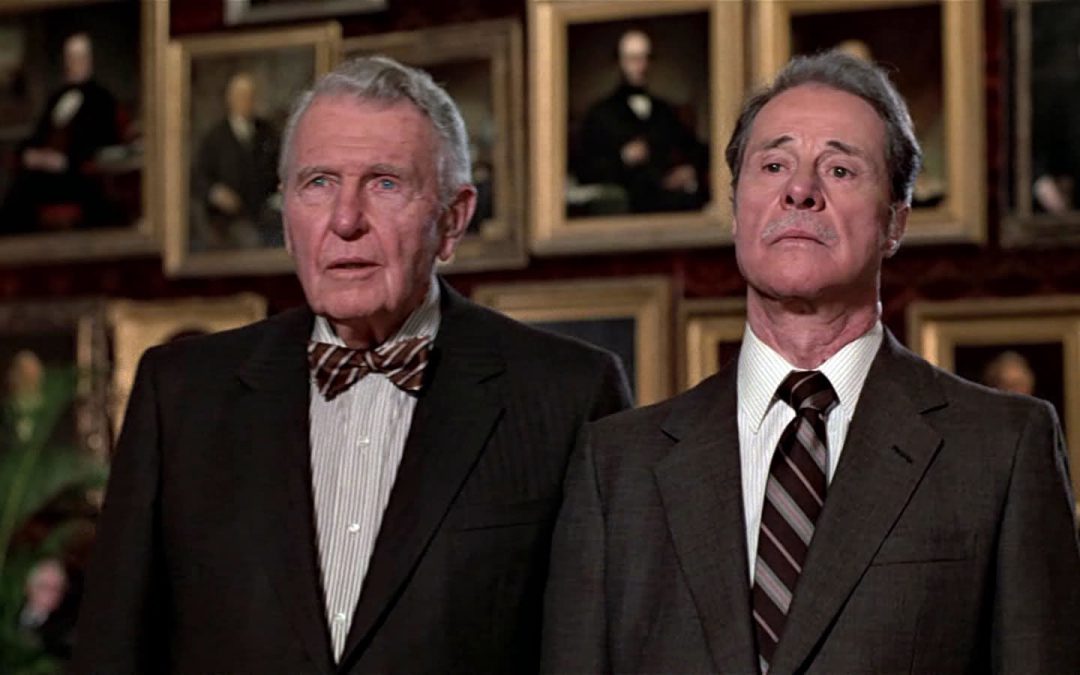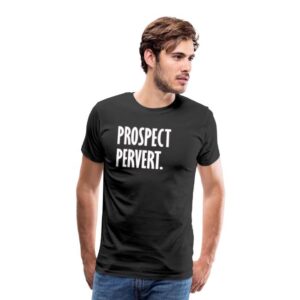It’s been a while since we’ve been asked to choose a side between millionaire baseball players and billionaire owners. The last time we really had to do it, Don Fehr was freshening up his lipstick and leading the MLB Players’ Association to five straight work stoppages against Interim Commissioner of Baseball for Life Bud Selig.
Usually, it’s pretty easy to choose sides because, well, baseball owners tend to be rich pricks who either got to be rich pricks because somebody died and left it to them, or because they screwed somebody over to get it. But that’s a pretty pessimistic view of things. Right now, the players and their agents are crying foul that it’s February 7 and more than 100 free agents are still unsigned. They’re claiming the owners are colluding to keep salaries down. Owners claim that plenty of players have offers, but just don’t like them.
So, let’s break this down scientifically and see who we got.
More than a quarter of the teams in MLB are actively trying not to win games.
Conservatively, at least eight teams (Royals, White Sox, Tigers, Oakland, the Barves, Miami, Pissburgh, and Cincinnati) are at some level of tanking. They are trying to follow the path set by the Cubs and Astros to bottom out, load up on draft picks and international slot money, and trade off any veterans that other teams want, and hope to collect enough young assets to start to compete again.
Sure, attendance goes in the shitter when you try to lose games, but if you time it right within your local TV contract where you don’t need to negotiate new rights while you’re tanking, you’ll more than save your lost attendance money by not paying high salaries to anybody. The success of the last two World Series champions using this very method can actually excite a fanbase. Somehow we’ve gotten to a place where a rich guy owner purposely not spending money is something fans are actually rooting for.
ADVANTAGE: OWNERS (1-0)
Other teams can’t (Minnesota, Tampa Bay, and San Diego) or won’t (NY Mets) spend big money on free agents.
Sure, you hear the Twins rumored to be in on Yu Darvish, but they’ll only get him if his other offers dry up. The Mets should be past the financial crisis that the Bernie Madoff Ponzi scheme caused the Wilpons, but they’re still operating like a small market team even though they’re in New York. They just pissed away $17 million on two years of a mediocrity like Todd Frazier, when they could have gone to four years and $70 million for a younger mediocrity like Mike Moustakas.
No fanbase wants to hear that their team would spend money on free agents but they just “can’t.”
ADVANTAGE: PLAYERS (1-1)
Some teams have managed to sneak back under the luxury tax threshold and want to stay there for one full season to reset their repeat offender tax.
The Yankees and Dodgers are both just under the $197 million luxury tax threshold and if they stay there for the season they will stop paying the multiplying penalty for being over, and won’t be subjected to the draft penalties that they would incur if they stayed over the tax. They can easily sell this strategy to their fans because a) they’re both good, and b) staying under the tax puts both in prime position to sign a top free agent or two next year when Bryce Harper, Manny Machado, etc., hit the market at very young ages.
ADVANTAGE: OWNERS (2-1)
Recent collective bargaining agreements have put limits on how much teams can pay players through the draft and under 25 international free agents.
The MLBPA was more than happy to sign off on CBA’s the last two times that put spending limits on draft classes and international free agents and carry stiff penalties for exceeding either. They were convinced that if the owners weren’t paying unproven college and high school kids big signing bonuses, or throwing millions of dollars at the next 15-year old Dominican sensation, that they’d spend that money on big league free agents. And, until now they’d been right.
But this year is evidence that the glut of inexpensive, cost controlled prospects that the spending limits created have changed the the salary structure outlook for most teams. In 2011, the year before draft slot restrictions were put in place, the Pirates gave Gerrit Cole an $8 million signing bonus, the Nats gave Stephen Strasburg $7.5 million and the Royals gave the great Bubba Starling $7.5 million.
Three years later you’d expect those bonuses would have jumped up even more, but thanks to the limits, the Cubs’ Kris Bryant got $6 million. Without the cap, how much would Scott Boras have gotten for a generational talent like Bryant? $12 million? $15 million? Instead, the Cubs got a dreamy superstar for the cost of a backup middle infielder. But instead of teams pumping their “savings” into free agency, they can look at it and say, “We need to get some of those low cost top prospects.” And instead of paying a 30 year old veteran $22 million to hit 24 homers and strike out 180 times, they tank and hope to hit the jackpot with the next Bryant and seven years of cost certainty.
ADVANTAGE: OWNERS (3-1)
Agents are bitching about collusion and threatening to hold their signed players out of spring training.
I’m sure there’s a case to be made for some of the mid-level free agents who are very useful players, but who aren’t getting offers because the half of the league who is actually considering signing free agents is waiting to see if any of the top free agents will fall into their laps due to a lack of competition for their services. But that’s not an argument the agents are making very well. Instead, what we hear about is that JD Martinez feels “insulted” that the Red Sox are “only” offering him five years and $150 million, when what he really wants is $200 million. Or we hear that Yu Darvish has multiple nine figure offers, but is hoping the Dodgers will move a shitload of salary to be able to re-sign him and stay under the luxury tax. It’s not our fault you tipped your pitches in the World Series and feel guilty about it. Or, you have Boras who has most of the big free agents (per usual) and none of them have signed as of February 7. Boras has Martinez, Arrieta, Eric Hosmer, Moustakas and Greg Holland to name just a few. So far he’s turned down a seven year contract offer to Hosmer, a three year offer from the Rockies to Holland (who then signed Wade Davis, instead) and the Martinez offer. It’s hard to argue collusion when you’re turning down those kinds of offers.
ADVANTAGE: OWNERS (4-1)
Most teams have a shitty contract or two on the books from previous drunken free agent season spending.
The Cubs are buried under that embarrassing Jason Heyward contract, the Yankees have the awful Jacoby Ellsbury deal, the Dodgers traded the terrible contracts of Adrian Gonzalez, Brandon McCarthy, and Scott Kazmir to the Barves, but had to take back Matt Kemp’s hilariously bad contract. The Red Sox are gagging on the deals they gave David Price and Hanley Ramirez, etc, etc. So this year, they all decided to go the austerity route. The problem is that they haven’t really learned anything, and they’re going to be throwing money by the fistful at the much better free agent class next year.
ADVANTAGE: PLAYERS (4-2)
The owners can’t collude, because they can hardly ever agree on anything.
In your mind, the owners are like Randolph and Mortimer Duke, betting each other a dollar and ruining players’ lives. But in reality other than having way too much money, the owners really don’t have that much in common with each other and don’t agree on much. It’s impossible to think that Tom Ricketts (even though his dad really owns the team), Bill DeWitt of the Cardinals, the Steinbrenners, and the Dodgers’ Guggenheim Baseball Management guys could agree to band together to hold down salaries, or that even if they could, that they would. It took these dopes decades to decide to let best record dictate home field advantage in the World Series, and they haven’t been able to choose a seemingly obvious solution to their archaic blackout rules, but sure, they can all agree to not sign top free agents.
ADVANTAGE: OWNERS (5-2)
It’s easy to convince yourself your team is good until you see it actually play.
All it takes for an owner who is holding the line on his own payroll to ditch that in a hurry is the sight of the reality of his roster in spring training. The Cardinals might think they’re all set, but then they go to Florida and see that Jedd Gyorko weighs 400 pounds, Matt Carpenter can’t throw a ball in the air from 45 feet and Yadi Molina can’t get out of his catcher’s crouch, and suddenly they are on the phone making panicked offers for Eric Hosmer. You think that the sight of camps opening and free agents having no place to go would panic the players, but the reality of seeing your guys actually try to play the game can do the same.
ADVANTAGE: PLAYERS (5-3)
The players are going to have to open a spring training camp for the unsigned players, because there are so many of them.
Just like after the 1994 strike when they had to have a motley looking camp for unsigned players in Homestead, Florida, the MLBPA is planning to do it again this year. Seeing all of them in one place is going to be quite a sight. That should be when the reality sets in of how many guys don’t have jobs yet. And yet, you can go to Cubs camp and see that Mike Fucking Freeman and the useless Peter Bourjos do. That should swing the sympathies towards the players.
ADVANTAGE: PLAYERS (5-4)
And finally (mock applause fills the internet), we root for players, not owners.
Fuck the owners.
ADVANTAGE: PLAYERS (5-5)
So, as you might expect, we decided nothing. What’s new?


